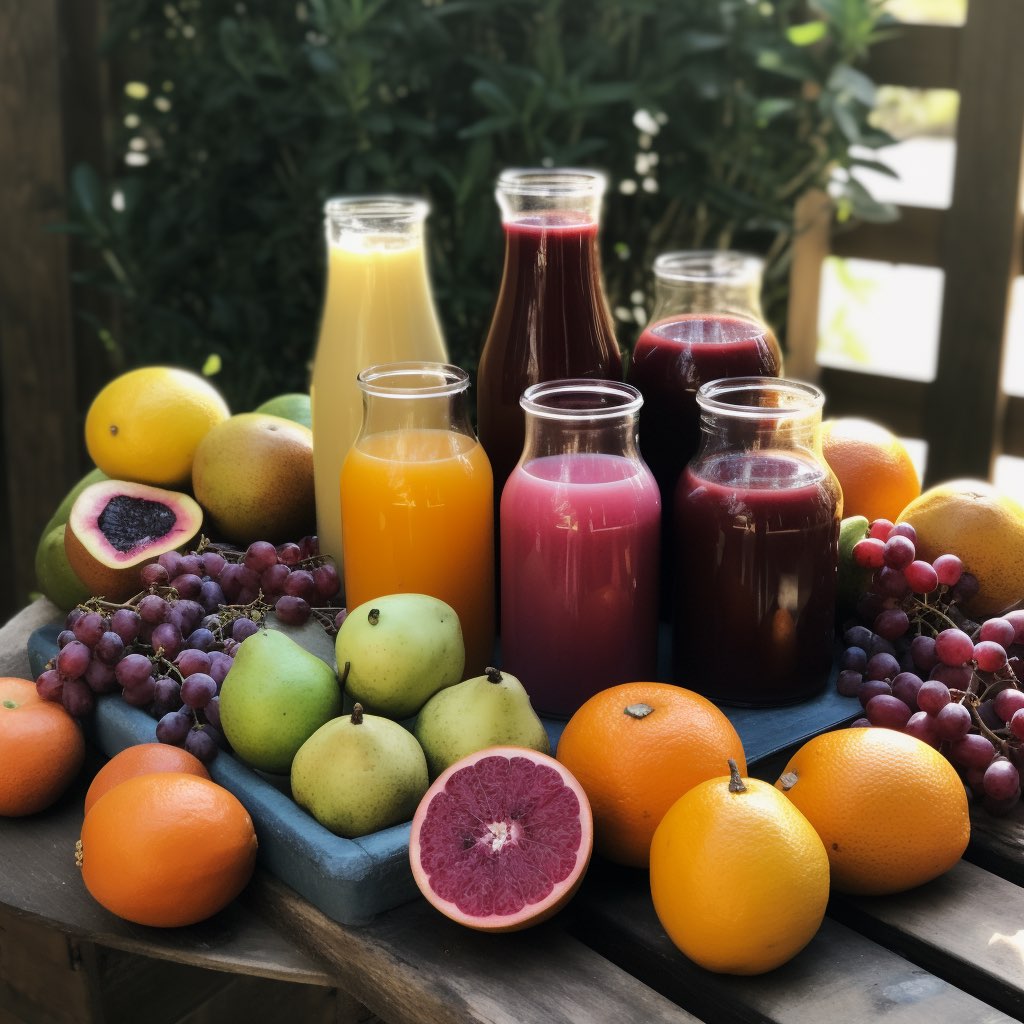
Fresh juices have long been praised for their nutritional benefits and refreshing taste. They provide a convenient and delicious way to incorporate a variety of fruits and vegetables into our diet. In this article, we will explore the role of fresh juices in a healthy diet and how they can contribute to overall well-being.
Nutritional Value of Fresh Juices
Fresh juices, especially those made from whole fruits and vegetables, are rich in essential vitamins, minerals, and antioxidants. They offer a concentrated source of nutrients that are easily absorbed by the body. Juicing allows us to access the vitamins and minerals present in the pulp and skin of fruits and vegetables, which are often discarded when consuming them in their whole form.
Benefits of Fresh Juices
- Increased Fruit and Vegetable Intake: Many individuals struggle to meet the recommended daily intake of fruits and vegetables. Fresh juices provide an easy way to consume a variety of produce, allowing us to reap the benefits of their nutrients and antioxidants.
- Hydration: Fresh juices are an excellent way to stay hydrated, especially during hot weather or physical activity. They provide a flavorful alternative to plain water and can help maintain optimal hydration levels.
- Boosted Immune System: Fresh juices are packed with vitamins, particularly vitamin C, which plays a vital role in supporting a healthy immune system. Regular consumption of fresh juices can help strengthen immunity and defend against common illnesses.
- Improved Digestion: Certain fruits and vegetables used in fresh juices, such as pineapple and ginger, contain enzymes that aid in digestion. Drinking fresh juices can promote healthy digestion and alleviate digestive discomfort.
- Antioxidant Protection: Fresh juices are a rich source of antioxidants, which help protect the body against oxidative stress and reduce the risk of chronic diseases. Antioxidants combat free radicals, unstable molecules that can damage cells and contribute to aging and disease.
Incorporating Fresh Juices into Your Diet
To make the most of fresh juices in your diet, consider the following tips:
- Choose a Variety of Fruits and Vegetables: Experiment with different combinations of fruits and vegetables to enjoy a wide range of flavors and nutrients. Include leafy greens, citrus fruits, berries, and root vegetables for a diverse nutrient profile.
- Focus on Whole Ingredients: Opt for homemade fresh juices or those made from whole fruits and vegetables. Store-bought juices may contain added sugars, preservatives, and fewer nutrients. Making your own fresh juices allows you to control the ingredients and ensure their freshness.
- Practice Moderation: While fresh juices are nutritious, they can also be high in natural sugars. It’s important to consume them in moderation and as part of a balanced diet. Aim for a variety of food groups to obtain a wide array of nutrients.
- Enjoy Immediately: Fresh juices are best consumed immediately after preparation to retain their nutritional value. If storing them for later consumption, refrigerate them in airtight containers and consume within 24 hours.
- Consider Fiber Intake: Juicing removes the fiber present in whole fruits and vegetables. To ensure adequate fiber intake, incorporate whole fruits, vegetables, and whole grains into your diet alongside fresh juices.
Frequently Asked Questions (FAQs)
Are fresh juices a replacement for whole fruits and vegetables?
While fresh juices offer a concentrated source of nutrients, they should not replace whole fruits and vegetables entirely. Whole fruits and vegetables provide essential dietary fiber, which is important for digestive health and satiety. It is best to consume a combination of fresh juices and whole produce for optimal nutrition.
Can fresh juices help with weight loss?
Fresh juices can be a part of a balanced weight loss plan, but they should not be relied upon as the sole method for weight loss. Due to their high sugar content, it’s important to consume fresh juices in moderation and consider their calorie content as part of your overall daily intake.
Are all store-bought juices unhealthy?
Not all store-bought juices are unhealthy, but it’s important to read labels carefully. Some store-bought juices may contain added sugars, preservatives, and artificial flavors. Choose brands that offer 100% fruit or vegetable juices without added sugars or artificial additives.
Conclusion
Fresh juices play a valuable role in a healthy diet, providing a convenient and delicious way to increase fruit and vegetable intake. They offer a concentrated source of nutrients, hydration, and antioxidant protection. By incorporating fresh juices into your diet alongside whole fruits and vegetables, you can enjoy the benefits of a diverse nutrient profile and support overall well-being.

